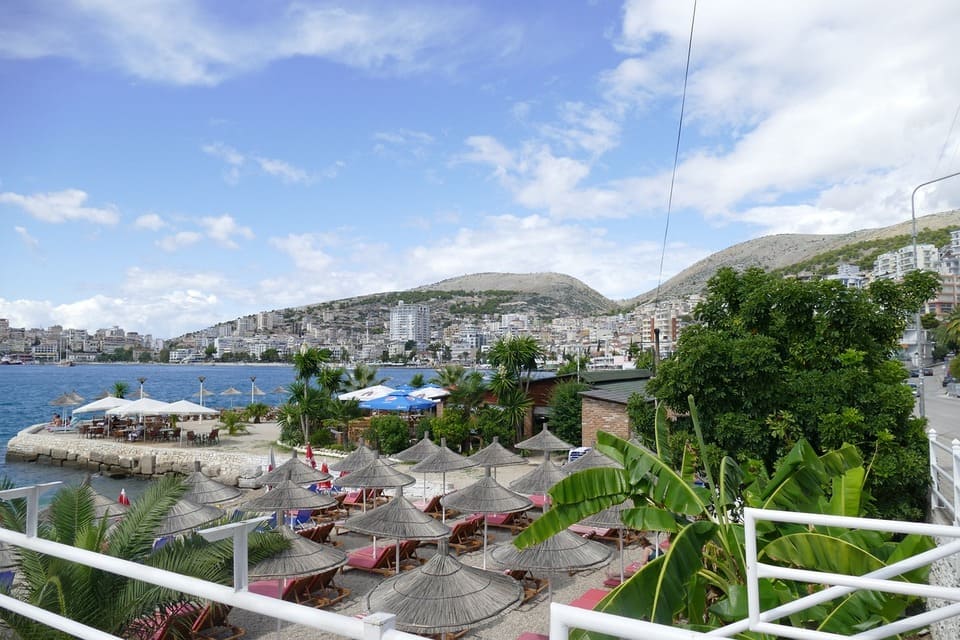
Albanian to English Made Easy: Tips from a Translation Agency
If you've ever faced the challenge of needing documents translated from Albanian to English or vice versa, you know it's more than just a word-for-word exchange. Effective translation captures nuances and ensures that both the original tone and intent are preserved. Whether you're a business professional, student, or involved in any sector requiring translation services, this blog post will provide valuable insights. Itis designed to shed light on the fundamental differences between Albanian and English, offering essential tips for anyone needing translation services. We'll discuss when it might be necessary to engage a professional translation agency and provide guidance on how to select the right provider to meet your specific needs.
Comparing the Albanian Language with English
The Albanian language and English belong to distinct language families and have developed independently throughout their histories. A comparison of these two languages highlights notable differences in grammar, vocabulary, and linguistic structures. These are key differences between Albanian and English:
- Grammar - One of the key differences between the Albanian language and English lies in their grammatical structures. Albanian has an inflectional system, with noun cases and verb conjugations that are heavily influenced by gender, number, and tense. English, on the other hand, has a relatively simpler grammatical structure, with fewer cases and a reliance on auxiliary verbs and word order to convey tense, aspect, and mood.
- Vocabulary - Vocabulary is another area where the Albanian language and English differ significantly. While English has borrowed extensively from Latin, Greek, French, and other languages, the Albanian language has retained its distinct lexical inventory. Albanian has preserved words of Illyrian and Balkan origin, although it has also incorporated loanwords from other languages due to historical influences.
- Alphabet - The Albanian language utilizes its unique alphabet, which is based on the Latin script. It consists of 36 letters, including some additional characters like "ç," "ë," and "xh" to represent specific Albanian sounds. English, on the other hand, uses the Latin alphabet with 26 letters.
- Pronunciation - Pronunciation divergences between the Albanian language and English are notable. Albanian has a phonetic system with consistent pronunciation rules, where each letter corresponds to a specific sound. English, however, exhibits a complex phonetic system with various vowel and consonant sounds, often influenced by spelling patterns and historical developments.
- Verb Conjugation - In Albanian, verbs are conjugated to indicate tense, mood, and aspect by changing the verb endings. English, in contrast, relies on auxiliary verbs and verb phrases to express these grammatical nuances.
- Linguistic Structure - Albanian is considered a synthetic language, with words often built by adding affixes to the root forms. English, on the other hand, is more analytic, relying on word order and separate words to convey meaning.
- Cultural Influences - Cultural influences have shaped the vocabulary and expressions in both languages. For instance, the Albanian word "besa," meaning trust and loyalty, reflects deep-seated cultural values. In contrast, English has absorbed words like "bungalow" from Hindi, showing its wide global influence and history of borrowing from other cultures.
In conclusion, comparing the Albanian language with English reveals striking differences in grammar, vocabulary, pronunciation, and linguistic structures. While Albanian is inflected and maintains its unique alphabet, English relies more on word order and auxiliary verbs.
In-Demand Translation Types - From Albanian to English
- Business and Trade - The translation of business contracts, financial statements, and import/export agreements from Albanian to English is fundamental for companies engaging in international trade and partnerships.
- Medicine and Healthcare - Medical reports, prescriptions, and patient records often need to be translated to facilitate treatment or insurance processes, especially for Albanians seeking medical services abroad.
- Academic Translations - Diplomas, transcripts, and research papers often need accurate translations for students or professionals pursuing opportunities in English-speaking countries.
- Legal Documents - Contracts, court rulings, birth certificates, and other legal paperwork require precise translations to meet the requirements of international law and cross-border agreements.
- Technical Translation - As a leader in olive oil and medicinal herbs, Albania requires technical translations for product labels, certifications, and export documents.
- Tourism and Hospitality Translations - As Albania emerges as a popular tourist destination, translating travel brochures, hotel websites, and tourism materials from Albanian to English plays a significant role in attracting tourists and providing essential information.
The Most Demanded Translation Types - From English to Albanian
- Literary Translations - English literature features many notable works that the Albanian audience is keen to explore. Translating these literary masterpieces into Albanian promotes cultural exchange and broadens the readership for prominent English authors.
- Technical Manuals and User Guides - With English being a dominant language in the technology industry, translating technical manuals, user guides, and software into Albanian enhances accessibility for Albanian-speaking users.
- Entertainment and Media Translations - Translating movies, TV shows, and other media content from English to Albanian ensures that the Albanian audience can enjoy a diverse array of entertainment from around the world.
- Business and Marketing Materials - Companies expanding into Albania need translations of websites, brochures, and promotional materials to reach Albanian-speaking audiences.
The Best Approach to Translate Albanian to English and English to Albanian
When translating Albanian to English, the human touch remains invaluable. Human translators bring linguistic finesse, cultural understanding, and contextual awareness that ensure the intended message is accurately conveyed. They can address the complexities of both languages, producing nuanced translations that capture the essence of the source text. However, advancements in AI-powered translation tools have made them increasingly useful for quick and convenient translations, offering a general understanding of the content. While AI can assist with speed and basic accuracy, it should be used with caution for critical or sensitive material, as it may miss cultural nuances or context. The best approach combines AI for speed and human expertise for refinement, ensuring high-quality and rapid translations.
Building Global Connections through Albanian to English Translation
Getting professional translation from Albanian into English is now simpler than ever with PoliLingua's free document translation quotation service. Whether you need to translate documents from Albanian to English or vice versa, PoliLingua has got you covered. Just upload your document into the request form and get a free quotation for all types of documents. Or just contact PoliLingua by phone or email to receive answers to all your questions.







